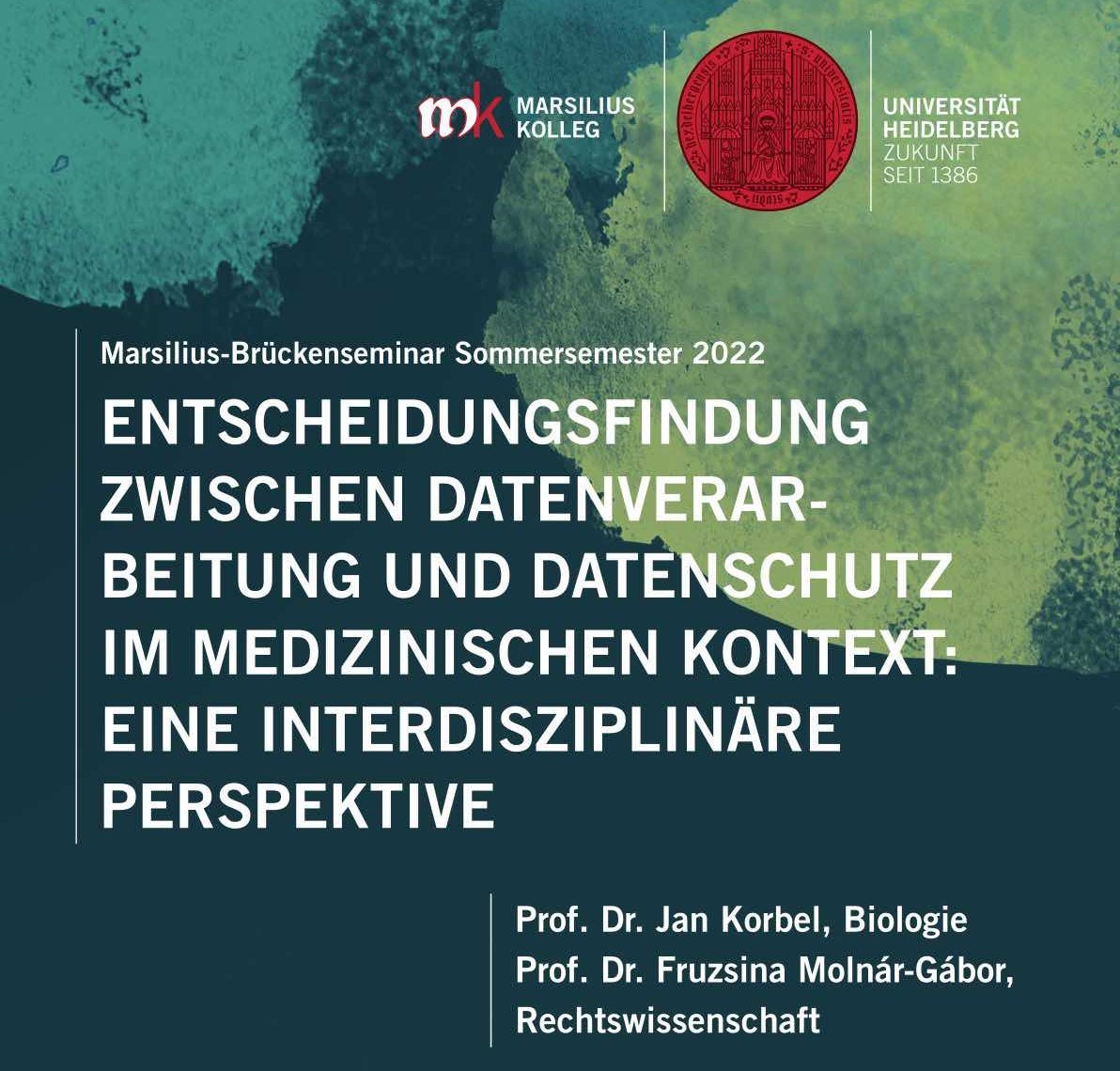Decision-making regarding data processing and data protection in the medical context
- 25 Oct 2022
- Lisa Kaldowski
The decision whether data processing can be carried out in a health context is largely determined by data protection regulations. Data protection regulations provide for a certain privileging of the processing of sensitive data for health purposes and for scientific research purposes, but require a balancing of the conflicting legal positions (e.g. rights of the data subjects and freedom of research) in order to decide on the possibility and scope of the data processing and its modalities. In order to reconcile the conflicting legal positions and interests, the proportionality of the data processing is examined.
Proportionality is a basis for lawfulness and includes the weighing of fundamental rights as a standard of assessment and also is thereby determined not only by legal arguments but also by technical-biological possibilities as well as social attitudes and goals.
The Marsilius Kolleg seminar “Decision-making regarding data processing and data protection in the medical context” addressed the question of how the legal and interdisciplinary aspects interact when deciding on different data processing in the health context. To this end, we explored the technical prerequisites, scientific motivations and medical necessities as well as societal perspectives in the context of the legal possibilities of data processing. The focus was on the trade-offs in public health, health care and medical research.
The interdisciplinary perspective resulted in exciting and stimulating discussions.






